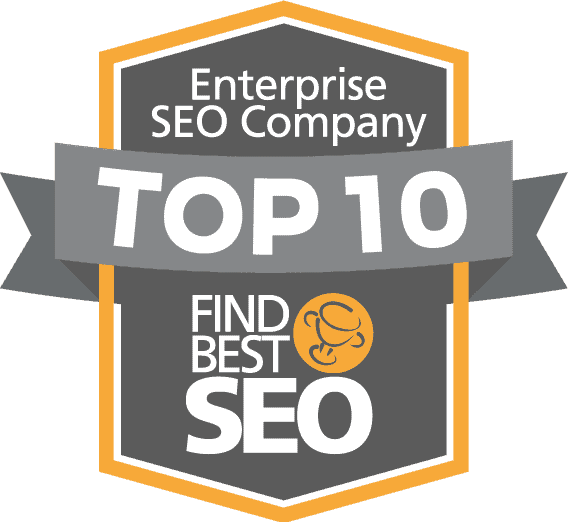Although they have been around for many years, podcasts are hotter than ever in 2020. Once mainly the realm of motivational speakers and business leaders, it seems like everyone is getting in on the act.
From beloved entertainers – like David Tennant’s increasingly popular podcast (born in lockdown) to sports – NBA star Carmelo Anthony’s wine and activism offering (odd for a ballplayer? Maybe but it gets a lot of traffic) to the many business podcasts that are both earning money and building brands for all kinds of people and companies there really is something for everyone.
Podcasting has a lot to offer to anyone – or any company – looking to build their brand, enhance their reputation as an industry expert – or expert on just about anything – or to simply help get their work out there. But however great your podcast is, people have to be able to find it to listen to it. And that – yes, you guessed it – involves SEO.
Making the best possible use of podcast SEO is an excellent way to grow its audience organically, increase its general visibility, reach a more targeted listening crowd and hit desired podcast KPIs.
The good news is that SEO for podcasting is not as hard to implement successfully, as you might imagine. The even better news is that, as experts in all things SEO, we’re here to help, starting with this look at some of the basics you’ll need to master to get the most out of SEO for podcasts.
What is SEO for Podcasting?
When people think about SEO, they often immediately think about pleasing Google. The Big G does have a role in podcast SEO (more on that later) but the other ‘big’ podcast repositories – Apple Podcasts, Spotify, Tunein and more – each offer their own search engines, so optimizing for those, and their slightly different algorithms – will need to be kept in mind too.
There are two distinct areas of SEO for podcasting: SEO for your podcast itself and SEO for its individual episodes. They may sound like pretty much the same thing, but they each offer quite different ways for your podcast to be discovered by new listeners.
For example, let’s imagine you offer a podcast on how to cook French food. Someone who’s a European cuisine buff might search Google for ‘podcasts about French food’ and, if you have done your SEO right find your podcast in their returned search results.
Another person, however, searches Spotify for ‘how to cook snails”. They may not see your podcast in their top results, but if you have recorded an episode called something like “Cooking Snails 101” they are likely to be offered that specific episode as a listening choice. See the difference? Both are equally important; they just call for slightly different tactics (as we’ll get into soon.)
Google and Podcast Indexing
As anyone who knows even a little about the SERPS and SEO knows Google – and the other search engines – make changes to their algorithm all the time. Sometimes these changes are as a result of internal changes in the way they want their search to function, but more often they come in response to a new search demand.
In 2019, having observed the uptick in interest in podcasts in general, Google made an algorithm change that not only made it possible for users to search for specific podcasts but, if that podcast was available on Google Podcasts or YouTube, featured episodes would be displayed to users to play right away. Like this:

What’s more Google Podcast index bots have the ability to ‘listen’ to podcasts published to Google Podcasts to help more precisely determine what they are about and how they should be indexed within both feature specific and general Google search.
But, as you can see from the search screenshot above, Google does not mind displaying results from other podcast services too. So, if a searcher prefers to consume their favorite podcasts on their iPhone directly the listing for Apple Podcasts is right there too.
So, you want to learn more about podcasting SEO? Great, let’s get started:
Podcast SEO for the Show Itself
Remember we told you there were two main aspects to podcasting SEO? This is the first, optimizing the show itself.
Figuring Out Your Focus Keywords
Yes, keywords are still important here. One of the very first things you will need to do is determine focus topic keywords for your podcast in general. The terms people are likely to input in any search to generally describe the kind of show they are looking for.
Going back to our first example. Cookery is a hugely saturated niche, but French cookery less so, so as a focus keyword for the show, it might be OK. Except some pretty heavy hitters from the world of French cuisine have podcasts, so to compete, more keywords would need to be added to the list. Easy French cookery perhaps.
You can, of course, make use of keyword suggestion tools to help you in the same way as you can for keyword discovery in any other aspect of SEO. One great tool we love for this purpose is Podrise. It will, like those Google bots we mentioned, listen to your show and extract keywords for you. It’s in Beta right now, but signing up here gets you access fast, and it’s a great utility.
Once you have your keywords, you need to start the optimization process, which logically, begins with the title of your show.
SEO Optimizing Your Podcast Show Title
If you are just getting started, this is much easier. Brainstorm a title that’s clever, descriptive and fun, but find a way to work those keywords in.
If you already have a show, but you didn’t have SEO in mind when you started it, a subtitle could be a solution. For example, if you already have a podcast on, say, Animal Crossing, but you originally called it something more obscure, like “Isabelle’s Updates” you could add something like “an unofficial guide to the World of Animal Crossing” to get a good keyword in.
SEO Optimizing Your Podcast Description
Metadata is always important for any SEO effort, as it better informs both users and bots just what content is about. In the world of SEO for podcasting, the description is of paramount importance, especially for platforms like Spotify and Apple Podcasts. Again, make it engaging but get each of your keywords in at least once.
Get a Podcast Website
If you don’t have a website devoted to your podcast, it’s time to change that. It’s always been a good idea, but now that SEO plays a much larger part in your show being found it’s a non-negotiable must.
A website is great for SEO, of course, if it’s optimized properly, but offers tons of other advantages as well. You can cater to those who like to consume their content differently, by offering transcripts, related articles and blog posts, imagery etc. You can build a subscriber mailing list. You can make use of ads to increase your revenue. And, just as importantly bypass platform searches by giving out a direct URL for your show rather than just a Spotify link.
Note: as an alternative to building a podcasting site, you can get Fusebox Podcast Player and display your podcast episodes on your WordPress site’s posts and pages.
Podcasting SEO for Each Podcast Episode
Moving on, it’s time to take a look at the SEO basics you should master for each individual episode of your show.
Set Episode Keywords
Yes, keywords again. They really are – for those who had not figured it out yet – still at the heart of SEO, even though the way they should be utilized is very different than it was ten years ago (or even two years ago) Search bots understand natural speech and nuance now, so you can make use of words and phrases that are far less awkward, which is great, but you’ll still need to find keywords that work.
One note. Don’t keep using the same keywords over and over again. Make sure that you choose a new focus keyword for each episode you produce. Even if they’re thematically similar, it’s crucial that each podcast episode focuses on a different keyword to boost your reach successfully.
Use Your Description to Sell Your Show
Obviously, your keyword needs to be in the description for every show, but it also needs to be engaging enough to sell browsing listeners on the idea of devoting some of their precious (and limited) time to listening to your specific offering.
So “Fred cooks easy French cuisine and makes frogs legs at home” might work for keywords, but as a description, it’s deathly boring. A better one? “Fred tackles a frog legs recipe done French style, with butter, parsley and lemon. A simple and classic way to cook frog legs at home.”
Thanks to the second description, potential listeners know what to expect but can also get a little bit excited. And you still get your keyword in. You might need a little pro copywriting help here, but that’s a great investment to make if you are serious about podcast SEO.
Use Your Exact Keywords in the Show
As we mentioned, the updates to the Google algorithm that include “listening in” on your podcast episodes are still very new, and we are slowly learning more about how this actually works. But it feels safe to assume that they’ll use the same (or similar) technology as YouTube uses to “listen” for keywords in videos.
Don’t keyword stuff though. Not only will doing so annoy Google, but it will make for a terrible show too. Once or twice is more than enough, and for other mentions try to make use of synonyms where possible, both to spice things up. For example, for that Animal Crossing show? Animal Crossing New Horizons and ACNH are both good ones that are also popular search terms (score).
Get Your Show on Google Podcasts
If you haven’t already, it’s now officially time to add your podcast to Google Podcasts. Google likes you to use their stuff. It makes it easier for them to index, and, let’s not forget, they are a business that likes to make money themselves.
When your podcast is available on their platform, Google may add audio snippets in search results, even when people are not directly searching for your specific broadcast.
That’s not to say you should ignore the other platforms though. Everyone has their favorite way to listen to podcasts and often they’ll use two, or even more, services.
For example, when out of the house, they might fire up Apple Podcasts to listen on their phone. At home though, they may have a Google Home, so asking that to play a podcast will either trigger Google Podcasts (the default) or, if the listener has it set up as primary, Spotify.
Remember Those Voice Assistants…
Especially now that so many people are working from home in light of the COVID-19 pandemic, many more people are using their Google Homes and Alexas and Apple Homepods to listen to podcasts hands and headset free.
This means that when they ask their ‘assistant’ to find them a podcast to listen to they will use more natural speech, as they are speaking, not typing. This means that you should also keep voice search optimization in mind, making use of relevant terms in both your written descriptions and the podcast itself.
Get Some Professional Help
This all sounds like a lot of work, right? On top of all, you already have to do to create content for your podcast, book guests, record it, edit it, get it placed in podcast markets, promote it on social media. The list goes on and on.
For that reason, to get the most out of podcast SEO, you should consider working with a pro. Not only does the Pearl Lemon team have extensive experience with SEO for podcasting, but the founder even has his own very successful podcast and has had it for several years.
This means that a lot of the SEO used that may seem out of the box when compared to other agencies has been tried and tested on ‘in-house’ content first. In other words, Deepak took the risk of letting us loose, as a team, with our SEO ideas on his podcast, so you don’t have to!
Contact us here to learn more about what SEO for podcasting could do for your show.








